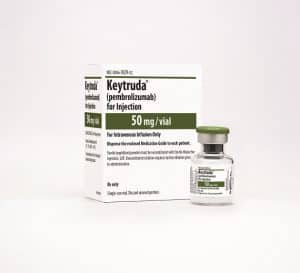
Blood biomarker discovered that can predict COVID-19 infection
pharmafile | July 20, 2021 | News story | Manufacturing and Production, Research and Development | COVID-19. blood testing, biomarker, gene
Researchers have identified a gene, IFI27, that becomes activated in early stages of COVID-19 even when symptoms are absent, helping to identify those who are most likely to have contracted the virus after coming in contact with an infected person.
The study results have been published in The Lancet Microbe and support further evaluation and development of blood IFI27 transcripts as a biomarker for early phase SARS-CoV-2 infection for screening individuals at high risk of infection.
A nested case-control diagnostic accuracy study was carried out among over 400 hospital staff from St Bartholomew’s Hospital, with weekly questionnaires on COVID symptoms, blood testing, and nasal swabs for PCR testing.
Researchers identified 20 candidate blood transcriptomic signatures of viral infection across 18 studies and evaluated their accuracy among 169 blood RNA samples from 96 participants over 24 weeks. A single blood transcript for IFI27 provided the highest accuracy for discriminating between test-negative controls and test-positive individuals at the time of their first positive SARS-CoV-2 PCR result, performing equally well in individuals with and without symptoms.
In some cases, IFI27 could predict infection one week before a positive PCR test, said coauthor Joshua Rosenheim of University College London. Overall, testing for IFI27 correctly identified 84% of COVID-19 cases and correctly ruled it out in 95% of uninfected participants.
In the published report the researchers, Rishi K Gupta et al., said: “There is a clear need to expand the portfolio of tests available for the identification of SARS-CoV-2 infection, for both screening and diagnostic purposes. Measurement of the host response, as opposed to viral targets, is one potential diagnostic strategy.
“Numerous studies have demonstrated whole-blood transcriptional perturbation during other acute viral infections, such as influenza, rhinovirus, and respiratory syncitial virus.”
In the study IFI27 was also shown to discriminate well between influenza and bacterial infections when measured using RT-PCR among people with suspected respiratory tract infection, further supporting its potential clinical utility for the detection of respiratory viruses.
Kat Jenkins
Related Content

SphingoTec’s PenKid leads the way in early detection of delayed graft function after kidney transplant
SphingoTec has announced new findings validating the clinical utility of its kidney biomarker proenkephalin A …

Eplontersen recommended for EU approval by CHMP for treatment of hereditary transthyretin-mediated amyloidosis
Wainzua (eplotersen), produced by AstraZeneca and Ionis, has been recommended for approval in the European …

MSD receives first FDA approval based on specific genetic feature
In a historic first, MSD (known as Merck in North America) has received approval for …






